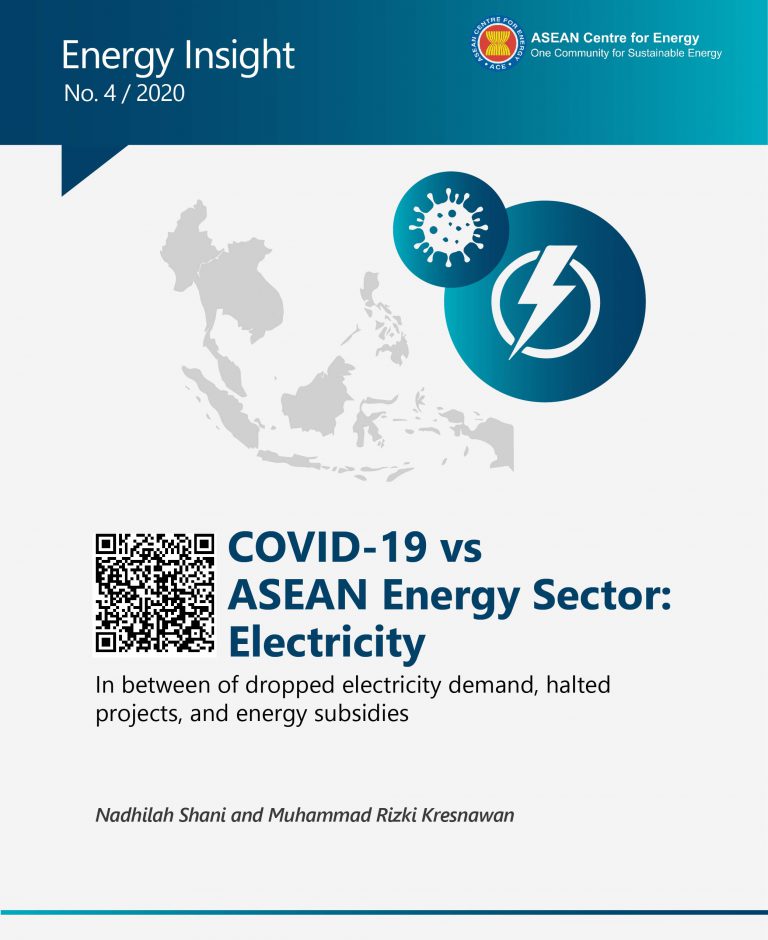RE Investment Series – The Philippines
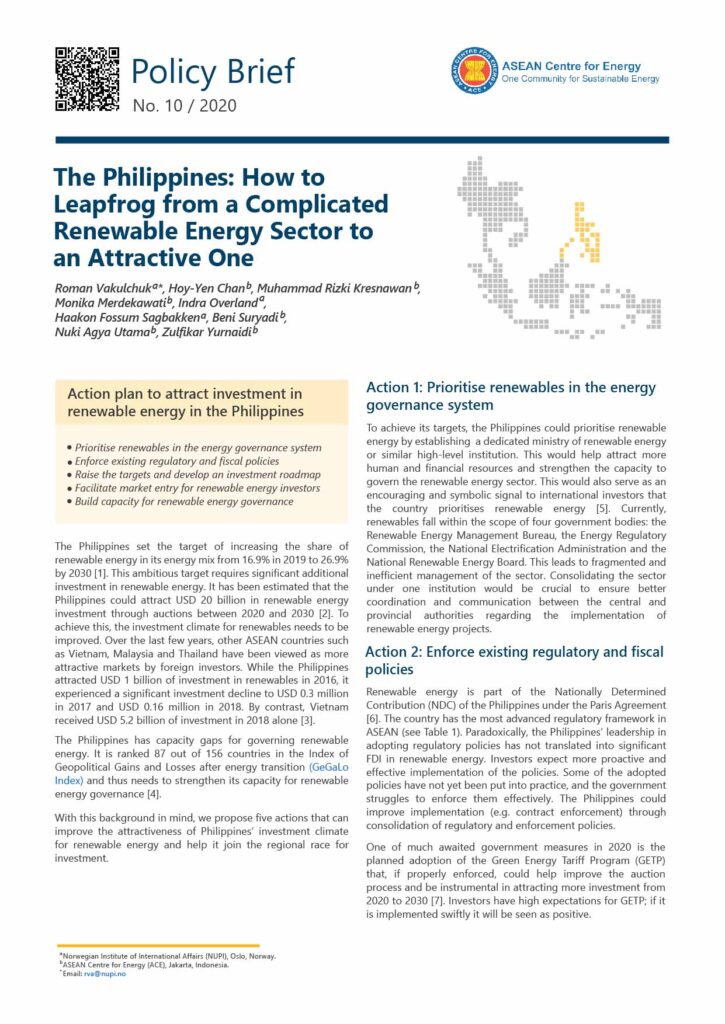
RE Investment Series – Myanmar
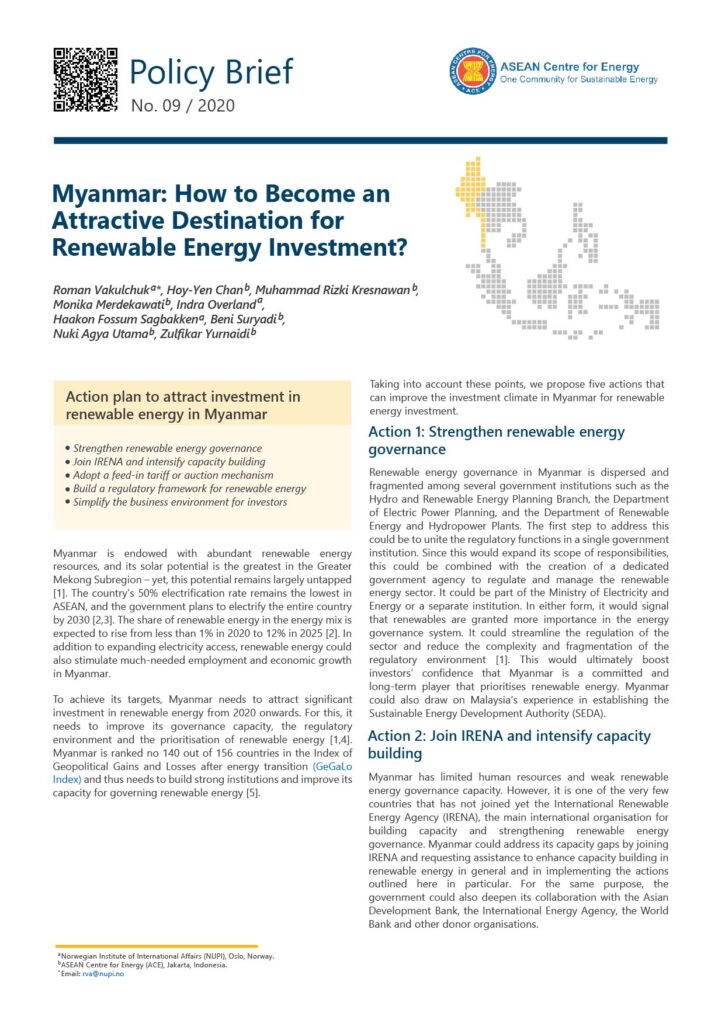
RE Investment Series – Malaysia
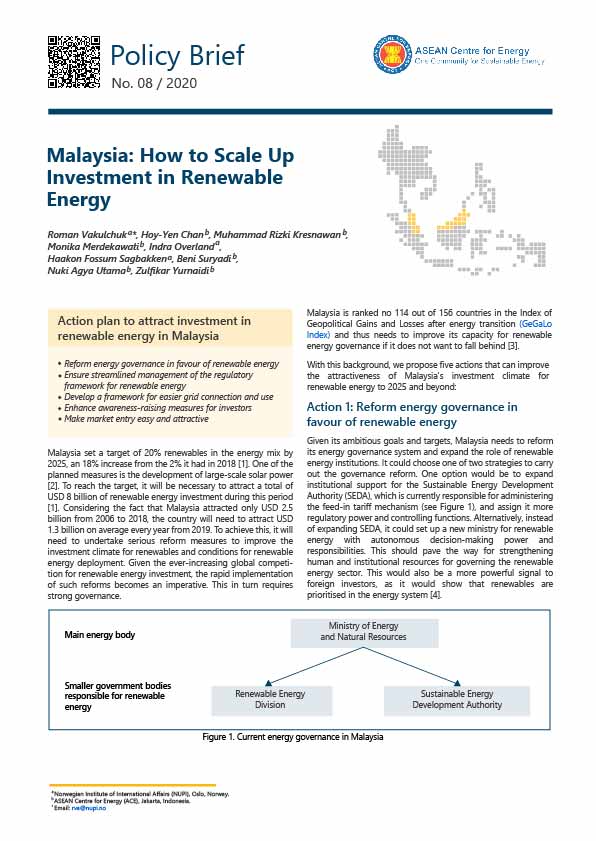
Energy Storage: Unlocking the Full Potential of Renewable Energy
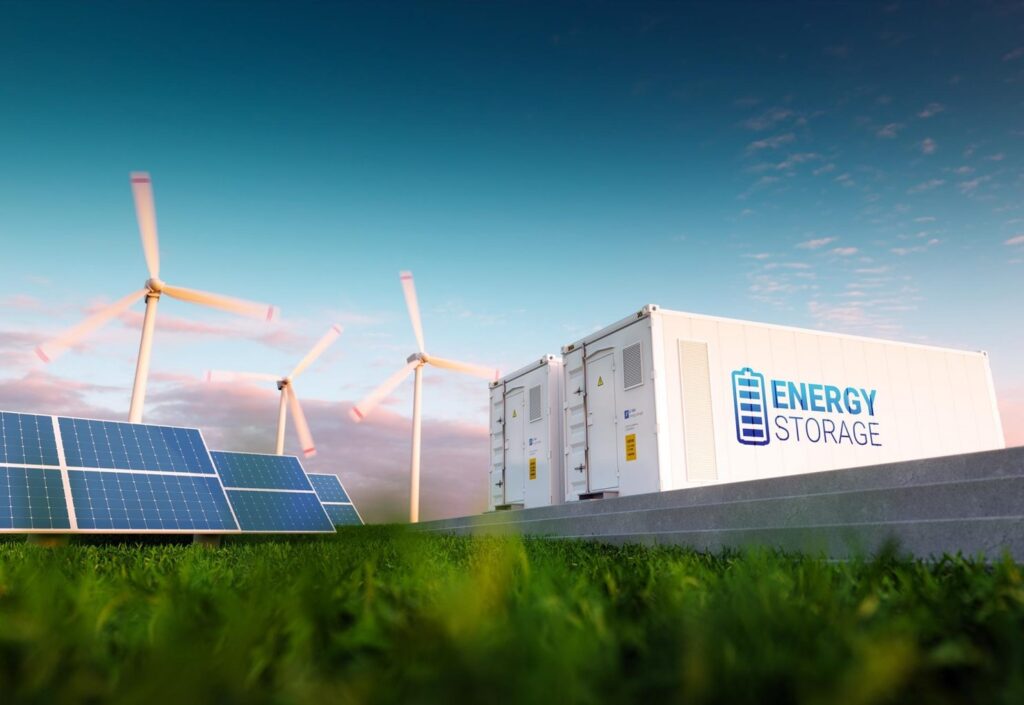
A New Beginning for Electric Vehicle, and How Southeast Asia Could Jump in and Ride the Wave
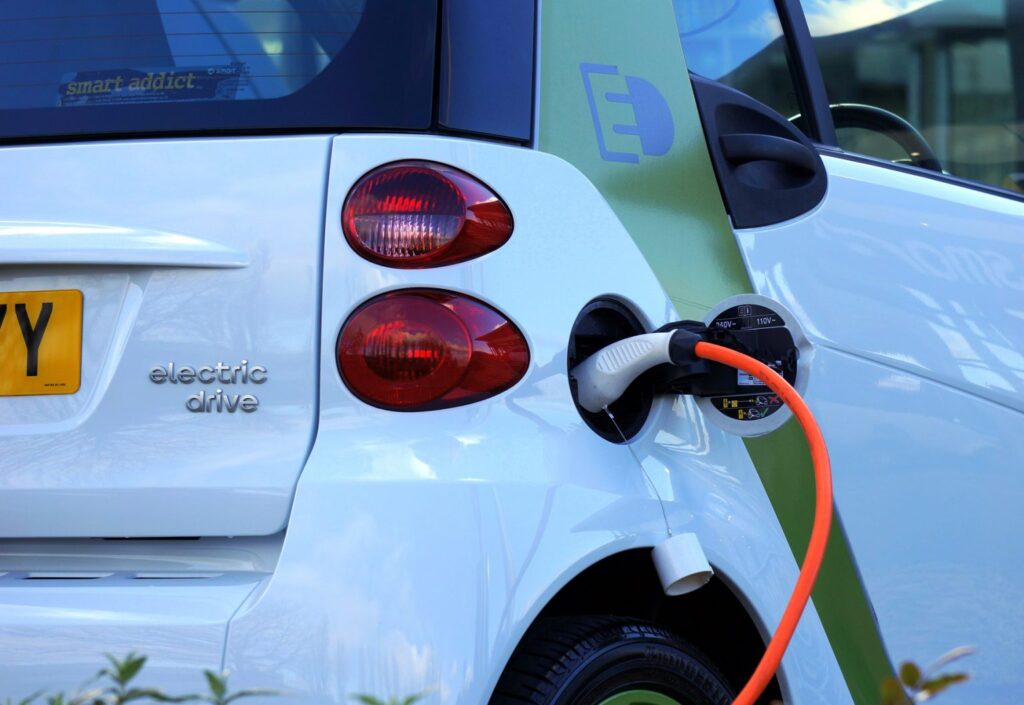
Electric vehicle (EV) penetration and other transportation manoeuvre in combating climate change continue set the story in transportation sector as huge decarbonisation and energy efficiency potentials could be achieved from them. Not only is EV technology approaching a tipping point as better performing, more affordable, and new model, but also this technology allows us to control the transportation emissions centrally through power plants.
COVID-19 vs ASEAN Energy Sector: Oil & Gas
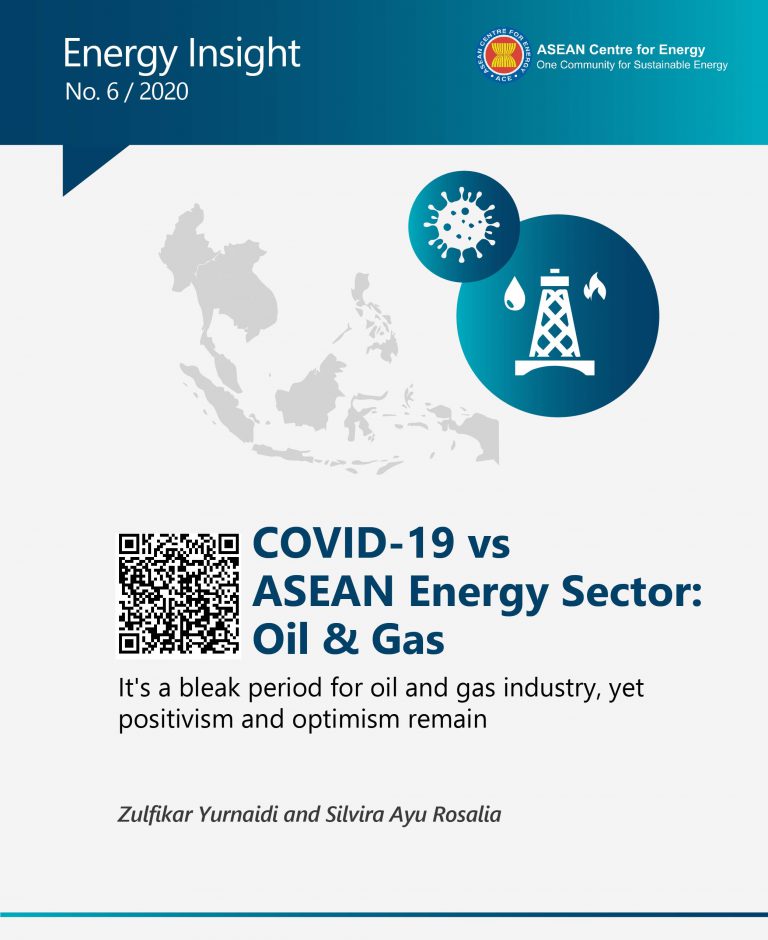
Plunge in demand, supply glut, and plummeting price—even touching minus point—have made oil and gas market gloomy especially in ASEAN countries. Even so, some positive impacts may be felt by oil importing countries, while fuel price reduction to some degree can ease the social effect of COVID-19. Although this might be a signal of economic slowdown, optimism remains and keeps oil and gas sector afloat in this troubled period.
COVID-19 vs ASEAN Energy Sector: Renewables
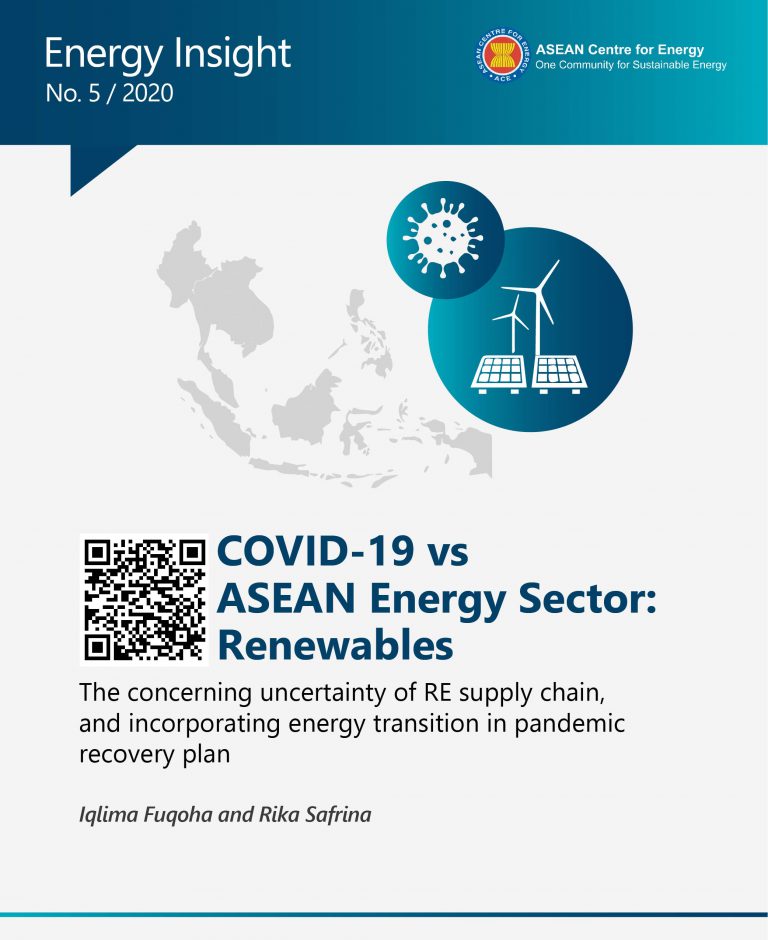
Renewable energy sector is also inevitably hit by this pandemic, remarkably under the disrupted supply chain and logistic which cause inevitable postponed projects. This pandemic creates both, opportunities and threat to RE as target and priorities of government are still on the fence. However, there is an optimism that this pandemic could shine a silver lining on how to progress with the energy transition and shape the RE industries once the economy bounces back.
COVID-19 vs ASEAN Energy Sector: Electricity
